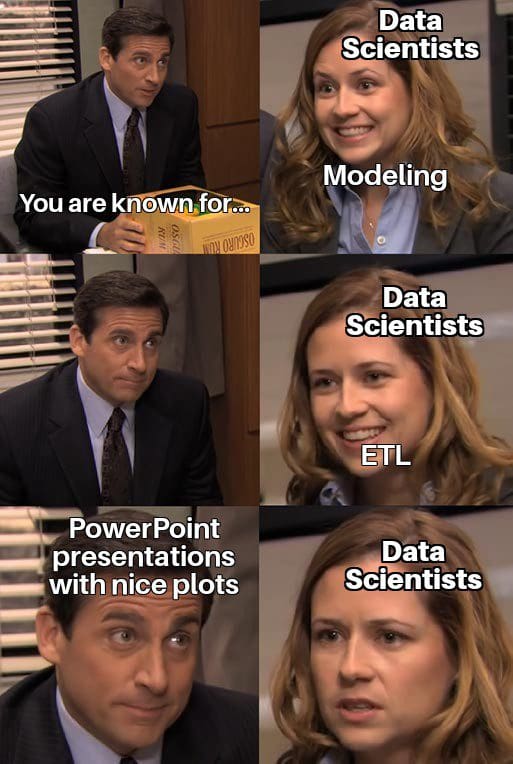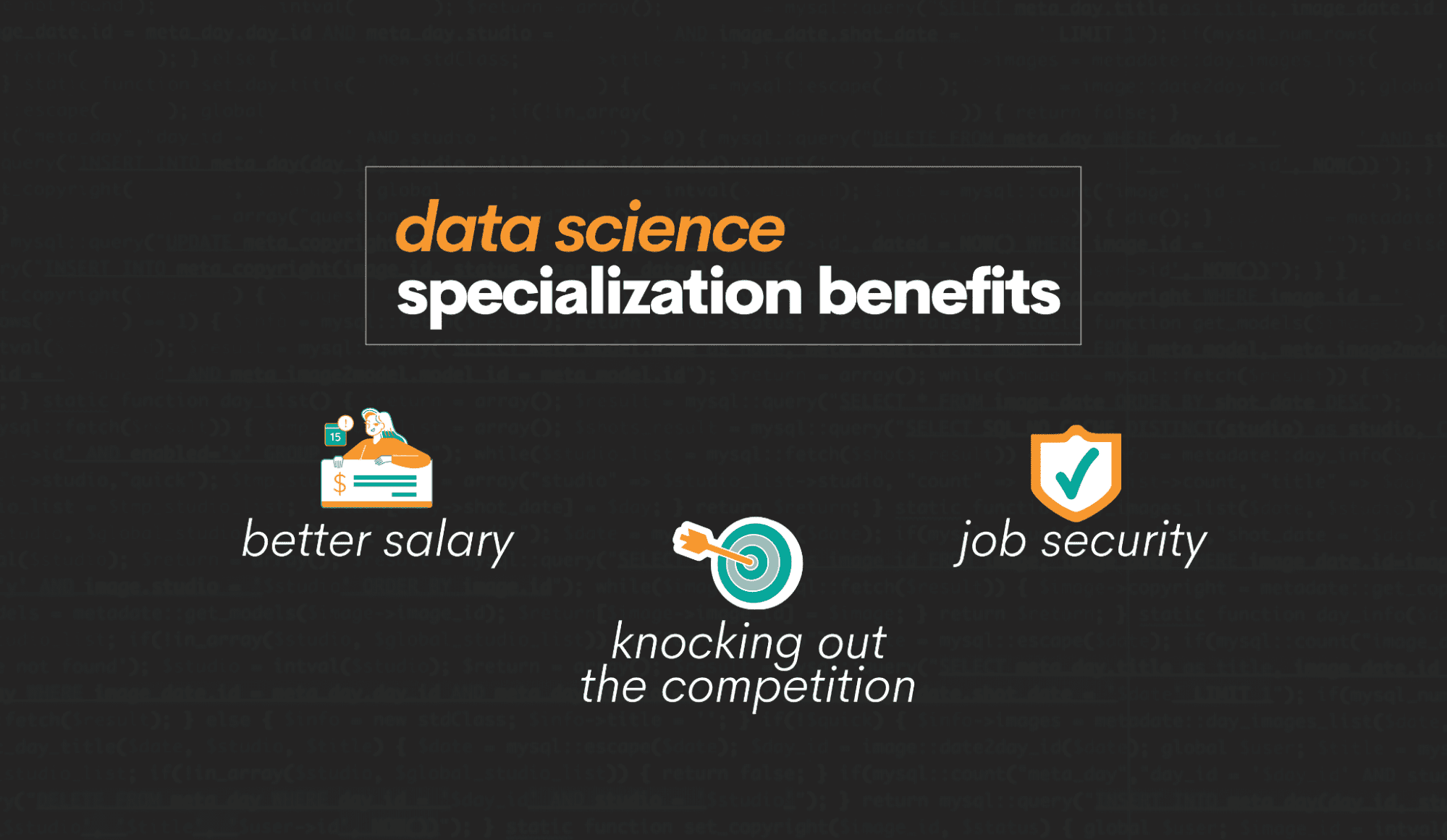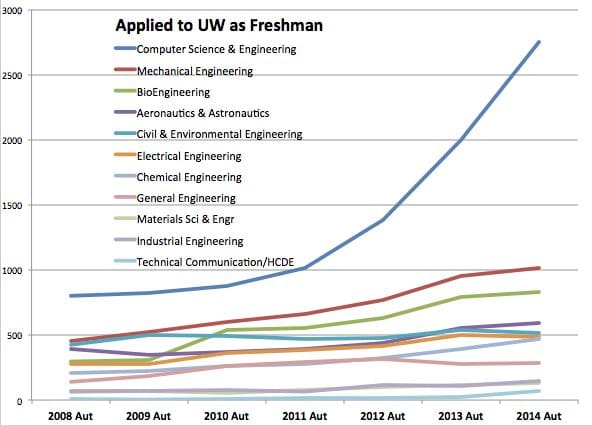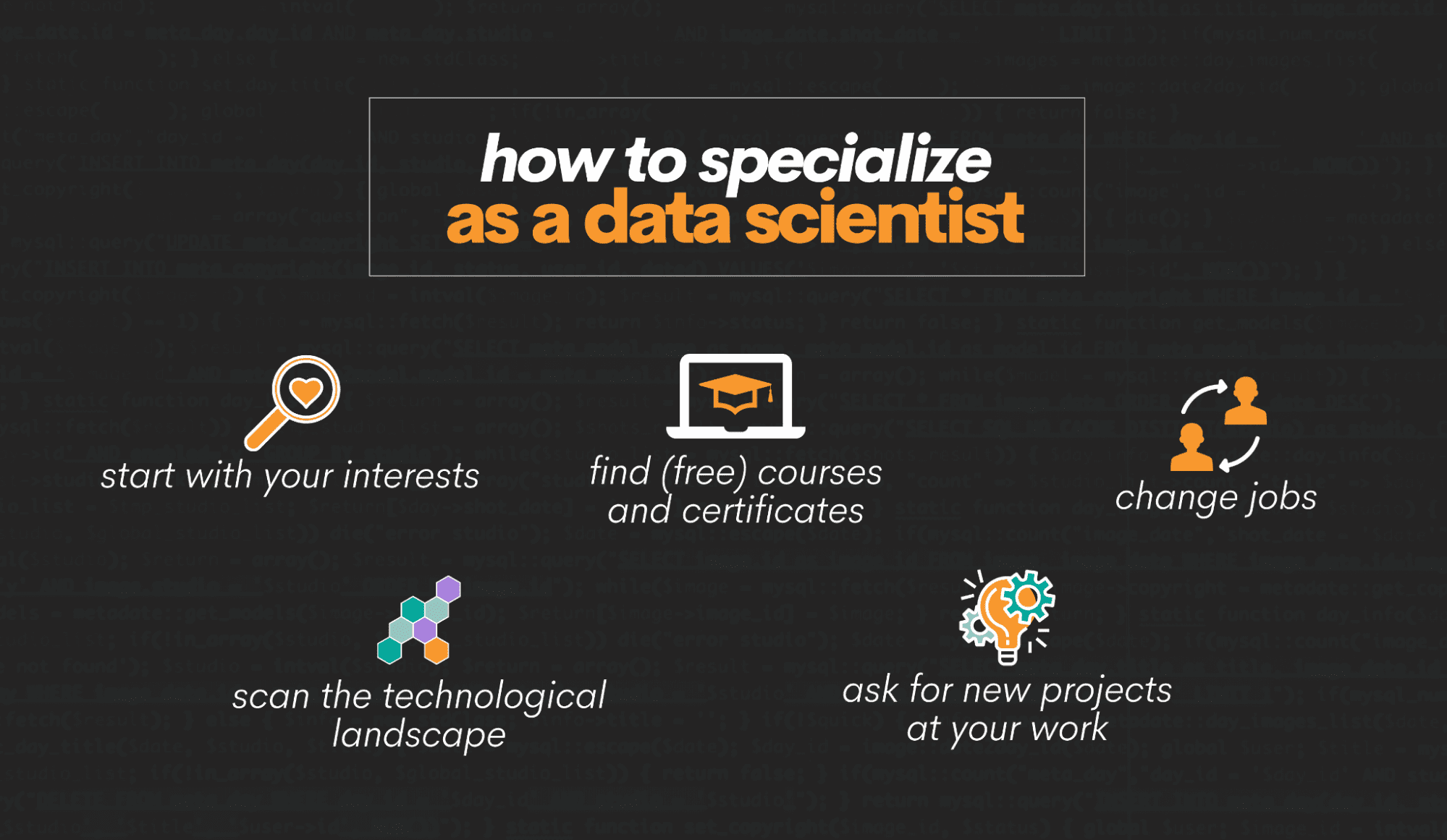Data Scientists Need to Specialize to Survive the Tech Winter
In this article, I explore the benefits of specialization for data scientists. Drawing on my own experience as a data scientist, I argue that specializing in a specific area can help you stand out in a crowded job market and provide you with more fulfilling career opportunities.

Photo by Ingo Joseph
The temperature in Silicon Valley is chilly lately. There’s no doubt we’re in a tech winter. Venture capital money has dried up, hundreds of companies are exercising their power with layoffs, and AI is breathing down everyone’s necks, prompting threats of additional job loss and uncertainty.
Data scientists are left wondering: is my job safe? And no wonder. What was once touted as the sexiest career is no longer looking so hot.
The overall job outlook for data science as a whole is rosy – The Bureau of Labor Statistics still predicts it will grow 36 percent over the next ten years, which is much faster than the average American job industry growth rate of 5 percent. But as any of the thousands of laid-off data scientists can tell you, statistics aren’t a shield against unemployment. The answer? Some experts suggest specializing is one of the best ways to stand out and make yourself unfireable. “As data’s influence grows and technology advances, specific roles on data teams will be needed to maximize efficiency,” writes Fortune author Meghan Malas.
I agree. Any data scientist will tell you the job is different depending on what your boss needs from you that day – spreadsheets, presentations, developing ETL pipelines, or developing experiments to run.

Image from Twitter
The only thing all data scientists have in common is that responsibilities are expanding as both the quantity and importance of data grow.
Instead of continuing to try to do it all, data scientists can better differentiate themselves through specializing. By picking a skill or domain, it’s easier to make their value proposition clear, staying relevant and valuable in a highly competitive job market.
Why Specialization Can Help Data Scientists Keep Their Job
Before I started StrataScratch, I was a run-of-the-mill generalist data scientist. I was constantly learning new skills and technologies to stay on top of the rapidly evolving field. But of course, the day came when I realized I needed to differentiate myself. I decided to specialize in infrastructure and how to enable data science work through infrastructure. My work in infrastructure changed the day the data scientists on my team worked, empowering them to deliver models and results faster than before.
After several years of focusing on data science infrastructure, I landed a job in data strategy in the biotech field. I quickly realized that my specialization gave me a significant advantage in the job market, as there were few people with the specific skills and experience that I had. This also meant that I was able to command a higher salary and a higher position, as the deep knowledge I gained specializing in one focal area propelled me to a more senior position solely because I had more knowledge and experience to influence other data scientists on my team.
That’s just my story, though. Specialization can help in several different ways, depending on your current situation and your overarching goal.

Image by Author
Aim for Job Security
In one of my favorite “How I Met Your Mother” episodes, Marshall gets a job at a law firm thanks to his friend Barney. Barney tells him he has to become the “something” guy. Maybe the snacks guy, the massage guy, or the games guy. That was the only way to avoid getting fired by his capricious boss.
Sometimes sitcoms have it right. Generalists can be replaced by other generalists. As a specialist, you’re much more valuable. It’s much easier to say, “No, we can’t get rid of Marshall because he’s our marketing analytics guy. He’s the one who helps us make all our marketing and sales pipelines. He’s crucial for the team.”
Knock Out the Competition
There’s a big demand for data scientists, but there’s also a growing demand for data science degrees, too. Add the fact that companies are now opening up to look at non-traditional backgrounds and you have a recipe for competition.

Image from Geekwire
By specializing, you can reduce competition in the job market. For example, if you specialize in natural language processing (NLP), you do limit the jobs you can compete for. But you’ll be in higher demand because there are far fewer NLP experts out there than there are data scientists.
Go for the Money
Honestly, pursuing a data science career can’t just be about the money. Specialization is the same. But if you find yourself interested in a particular part of your job, it’s worth knowing that specialists command a higher salary than generalists, no matter how many skills the generalist knows.
Take a look at Indeed’s data, just as one indicator: a data scientist earns an average base salary of $127k per year. Compare that to a Machine Learning Engineer ($155k) or a Backend Developer ($158k).
How to Specialize as a Data Scientist
OK, you’re convinced of the value of specialization. How can you specialize? Let’s break down the steps.

Image by Author
Start With Your Interests
If you're going to specialize, you need to make sure you're interested in the area you're going to focus on. It can't just be about the money; it has to be about what you enjoy doing. Start by looking at your interests.
What are you passionate about? What kind of projects do you find yourself pursuing in your free time? By identifying your interests, you can begin to see where you might be able to specialize. One way to figure out what you’re passionate about is to try to understand what type of work are you excited to work on? For example, in a project, are you usually more excited to do the infrastructure work? Or the modeling work? Or the data cleaning work? Figure out what you like doing and go deep.
Look at the Technological Landscape
The technological landscape is constantly changing, and it's important to keep up with the latest trends. For example, look at Meta. After spending years and untold billions on the metaverse, they are now pivoting to AI, along with every other major tech company.
Once you’ve got your shortlist of topics that are of interest to you, look for areas where there's a lot of activity and demand. This will help you identify where you might be able to specialize and where there might be opportunities to differentiate yourself.
A great place to look is Indeed. This article is a little old, but I loved the idea. The author scraped Indeed for job postings mentioning specific languages and cities. They found R, SQL, and Python are top of the list. You can also check out StackOverflow’s Developer Survey. They keep a pretty close finger on the pulse of in-demand technology, so it’s worth reviewing.
Find Free Courses and Certificates
Once you've identified an area of interest, look for free courses and certificates to help you develop your skills. Don't start with expensive courses; start with free ones to see if the knowledge sticks.
There are plenty of free resources out there, including online courses, books, and practice platforms. Take advantage of them to build your data science skills and knowledge. Once you feel semi-confident, you’ll probably want to do projects in order to build your portfolio.
Ask for New Projects at Work
If you're already working as a data scientist, look for opportunities to show off your new skillset. Talk to your boss and colleagues about your interests and see if there are any projects you can work on that will allow you to develop your skills. By taking on new challenges at work, you can build your experience and expertise in your chosen area of specialization.
For example, if you're interested in natural language processing, you could ask to work on a project that involves analyzing customer feedback data or developing a chatbot for customer service. If computer vision is more your thing, see if there are any projects related to image recognition or video analysis that you could contribute to.
Sometimes the business needs dictate what your next project will be. For example, one of my first projects as a data scientist was to create an NLP algorithm to track food-borne outbreaks using Twitter tweets. I didn’t have any training in building NLP algorithms so I had to start from scratch and learn as much as I can during the project. It was a great learning experience to build my skillset as a data scientist.
Change Jobs
Finally, the time may come for you to jump ship. If your boss refuses to see you as anything more than a data-scientist-of-all-trades, you may need to pivot to a new company to showcase your new career direction. Sometimes, you may be bored of your employer’s business needs (e.g., same needs all the time), tech stack, and team structure. If you’re not excited to come into work every day to learn, then it might be time to explore new opportunities that let you grow and learn as a data scientist.
Look for job postings that match your new skills and apply for them. By changing jobs, you can start fresh and demonstrate your new expertise to a new employer.
Sink or Specialize – The Choice Is Yours
As a data scientist, it’s just smart to specialize. But hopefully, it’s more than just a good career choice – specializing in my field brought me a lot more clarity in my role, as well as enjoyment and purpose. My bosses understood what I was supposed to be doing much better, and were able to give me more useful KPIs. I had a better view of how I could bring value. And I got to indulge my interests, too.
By following these steps, you can begin to specialize as a data scientist and stand out in a highly competitive job market. Remember, specialization isn't just about making yourself more employable; it's about pursuing your interests and building a career that you enjoy. Good luck!
Nate Rosidi is a data scientist and in product strategy. He's also an adjunct professor teaching analytics, and is the founder of StrataScratch, a platform helping data scientists prepare for their interviews with real interview questions from top companies. Connect with him on Twitter: StrataScratch or LinkedIn.
